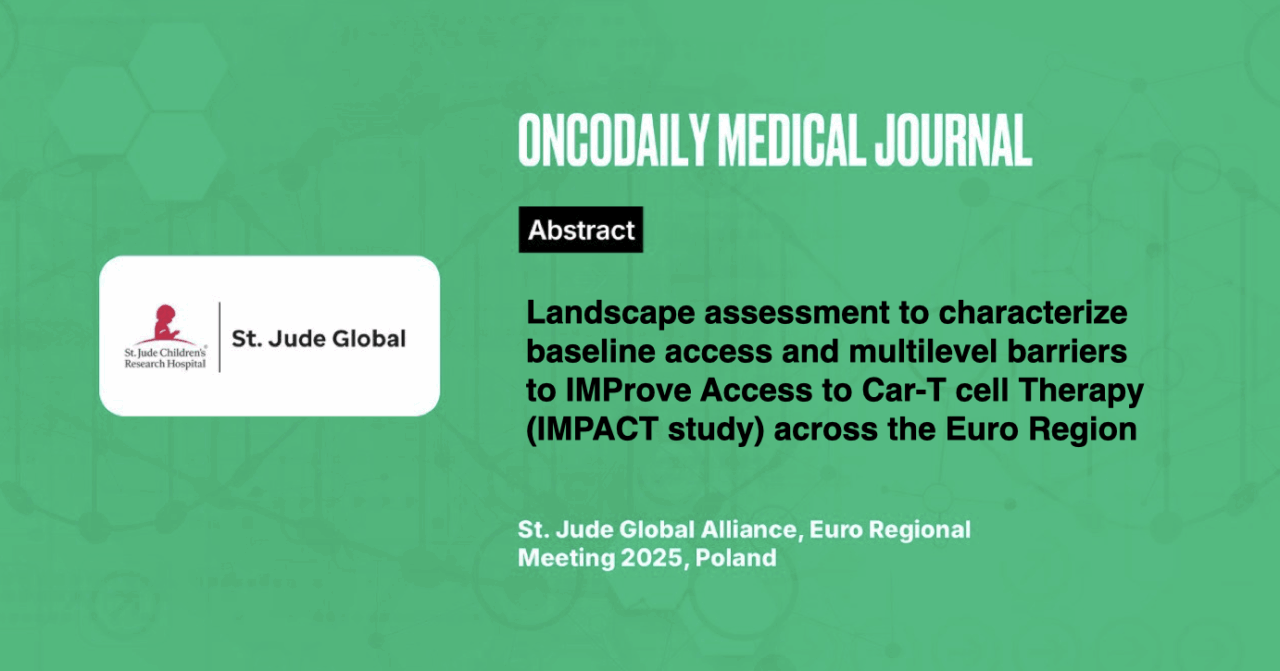Landscape Assessment To Characterize Baseline Access And Multilevel Barriers To Improve Access To CAR-T Cell Therapy (Impact Study) Across The Euro Region
Abstract
Introduction: CAR-T therapy has revolutionized the treatment of pediatric BCP–ALL, but multilevel health system barriers restrict availability outside of high-resourced countries. To develop tailored strategies to improve access to CAR-T, this study assesses potential needs, current access, and barriers to CAR-T cell therapy for children across Europe.
Methodology: Through a collaborative effort between EBMT, IBFM, and St. Jude Children’s Research Hospital, a Qualtrics survey was developed to assess factors impacting CAR-T access at a country level.
Results: Respondents included 16 WHO-defined European countries (14 high-income, 2 low- and middle-income), reporting a median of 3.5 (IQR: 1.5-5) pediatric oncology centers per country and a median of 57.5 new cases of BCP-ALL per year (IQR: 25-98.8). While 88% (n=14) had hematopoietic stem cell transplantation facilities, only 75% (n=12) of countries currently offer CD19 CAR-T cell therapy within their country. The cost of CAR-T therapy was fully reimbursed by the government in 75% (9/12) of these countries and almost always reimbursed in 25%. Tisagenlecleucel was the most utilized CAR-T source, available in 83% (n=10) of the countries.
Despite this, only 42% of countries reported active CAR-T clinical trial participation or international collaboration for children to receive CAR-T cell therapy, and only four countries had academic CAR-T clinical trials. While most countries (92%) indicated they accepted foreign patients, the mean number of foreign patients treated annually was 2.8 (SD = 1.8) per country. Additionally, 12 countries expressed interest in joining a referral network to enhance collaboration.
Conclusion: This interim analysis highlights gaps in clinical trial availability, international collaboration, and referral networks that impact CAR-T availability in Europe. However, early data from the survey demonstrates an opportunity to improve the representation of experience from LMICs in the region.





